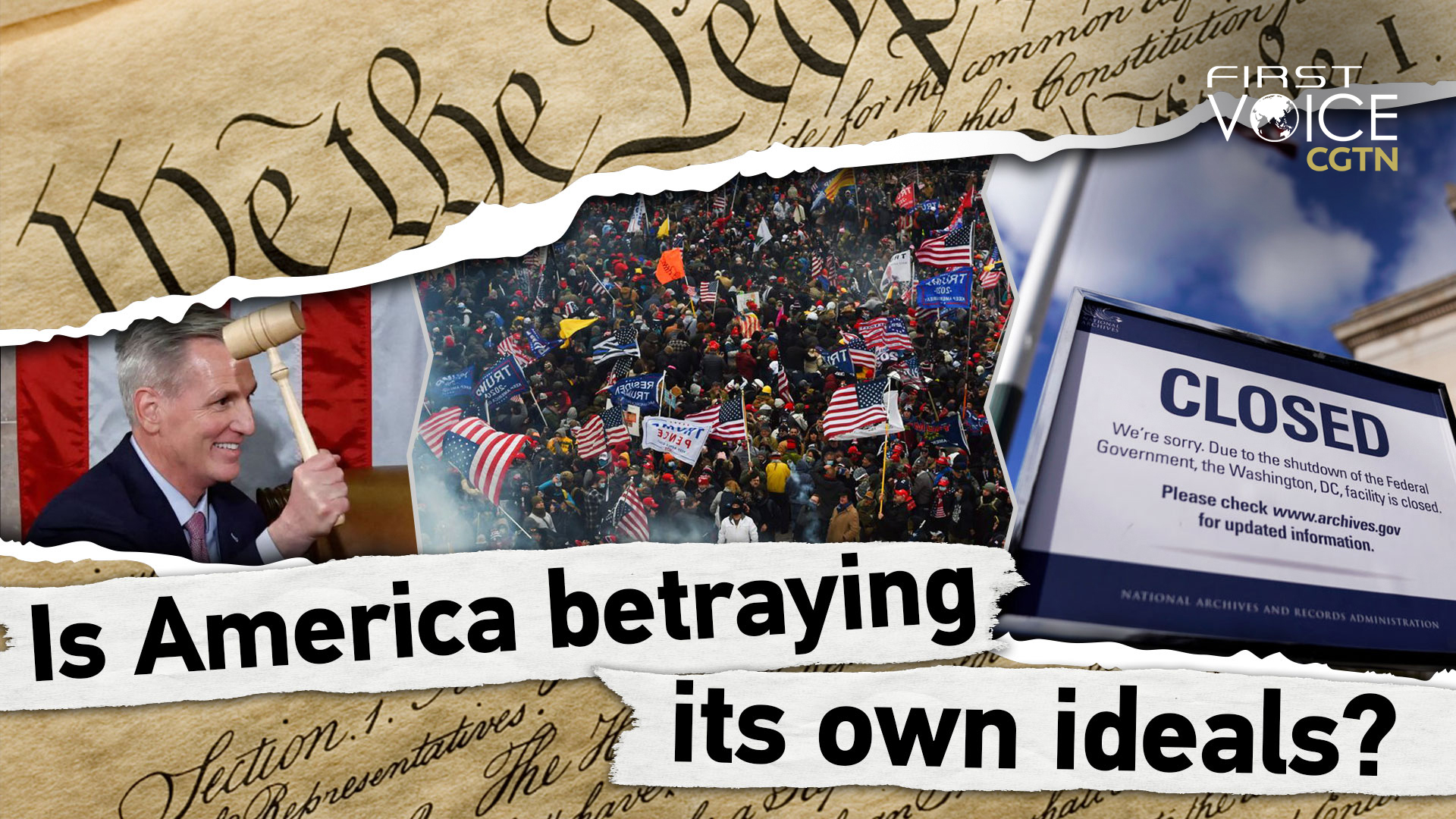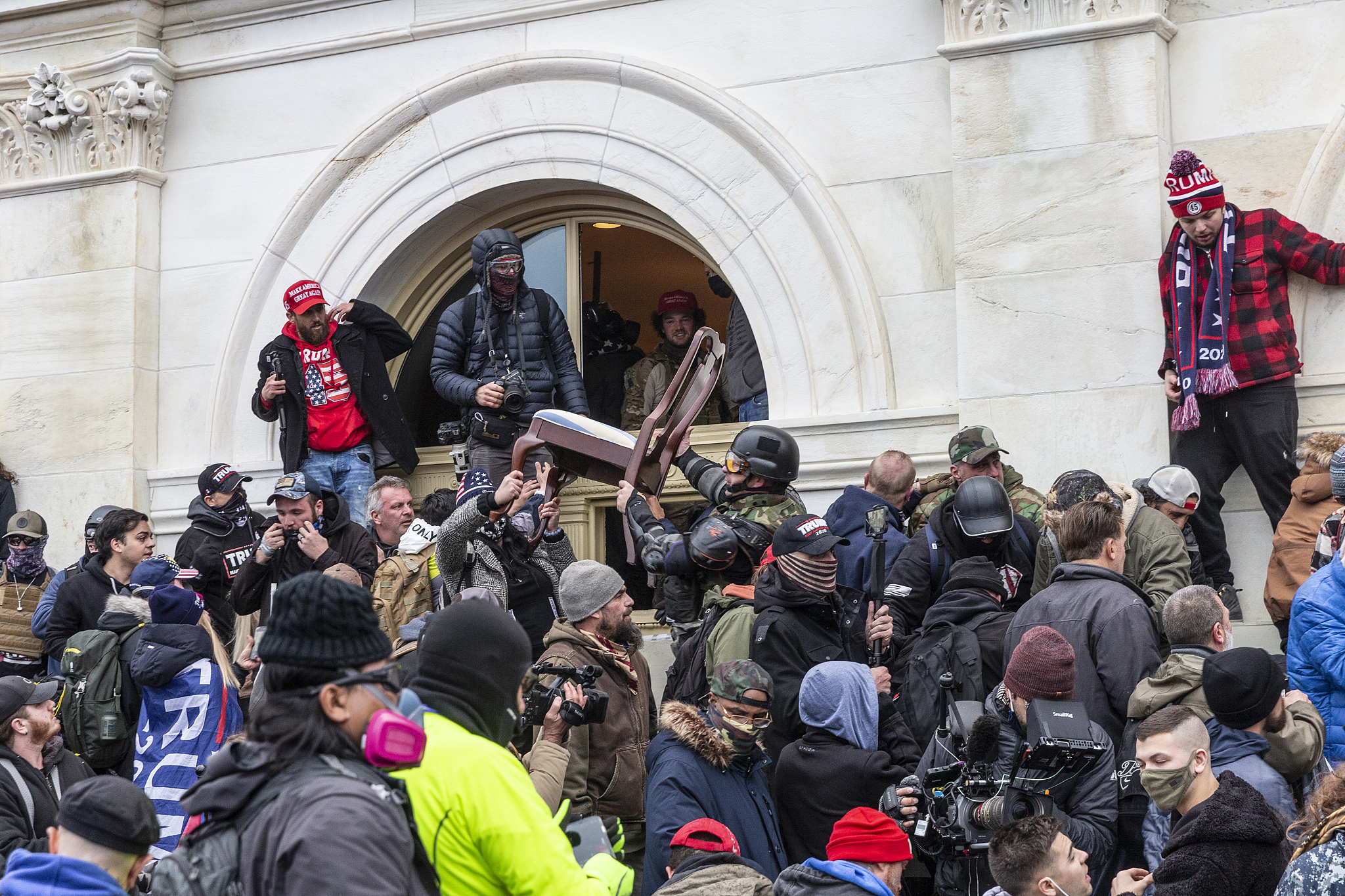
Editor's note: Wretched City upon a Hill is a 10-part series examining the clash between America's cherished beliefs about their democracy and the jarring truth about how the system fails in practice. The first essay is on how American ideals have been betrayed by its current political system.
The concept of "America betraying America" might sound paradoxical and puzzling, but it may be the most accurate description of the dramatic changes in contemporary American institutions, especially when we review history.
As many American scholars have written, America has long been on a track drastically different from the vision of its Founding Fathers.
The constitution was designed to create a small federal government with power divided among three branches: the legislative, executive, and judicial. American society was designed to operate with a high degree of autonomy, with little government intervention. This would allow the people to ardently pursue political freedom, individual liberty, and private rights.
This idealistic vision of government, however, has long been sidelined in reality. In 1887, U.S. scholar Albert Shaw observed that average Americans were good at gloating over their fictitious legal conceptions. However, Americans were deeply divided in their philosophy and practice of running their government. They cherished the concept of laissez-faire, but relentlessly pursued policies of the exact opposite nature, oblivious to the contradiction.
The American ideal of small government has been shattered by the Americans themselves. From the American Civil War to Franklin Delano Roosevelt's New Deal, from World War II to the Cold War, from regional hegemony to global hegemony, the U.S. government has grown larger and larger, and its "arm of jurisdiction" has become longer and longer. As a result, the entire system of U.S. government has undergone two major changes.
First, the actual power of the U.S. government has been gradually concentrated in the executive branch. Since the U.S. Congress has been incapable of solving social and economic problems, it has authorized the executive system to achieve governance goals, in violation of the vision of the Founding Fathers.
As the head of the executive branch, the U.S. president continues to gain power. The shift has created what has been called the "imperial presidency," and critics refer to the entire modern U.S. government as the "presidential government." This is the most striking political development in contemporary America.
As the legislative branch has been weakened, so has the judicial branch. The judicial branch, led by the Supreme Court of the United States, is increasingly yielding to the executive branch. As several studies by American scholars have shown, the U.S. federal courts at all levels defer to the strengthened executive system in most of their jurisprudence. This remains overwhelmingly true despite notable exceptions, such as the recent overturning of Roe v Wade, which was not about creeping federalism per se.
Overall, in the course of the internal and external expansion of the U.S. since the 20th century, executive power has been at the center. Congress has ceded its power to declare war. There has been far more cooperation among the three powers than checks and balances. Executive dominance has become the defining feature of contemporary American government.

Supporters of former U.S. President Donald Trump breached through the windows into Capitol building and threw furniture out in Washington, D.C., U.S., January 6, 2021. /VCG
Supporters of former U.S. President Donald Trump breached through the windows into Capitol building and threw furniture out in Washington, D.C., U.S., January 6, 2021. /VCG
The second major change is that U.S. governmental power is massive and bloated. In terms of organization and scale, the U.S. government today is very different from what it was like in the times of George Washington.
The U.S. government now has redundant branches and is becoming more and more powerful. A vast administrative structure has developed. It includes the president and his executive agencies, cabinet departments and their subsidiary agencies, independent administrative agencies, government enterprises, specialized committees, and quasi-official agencies.
A 2020 study by the Brookings Institution estimated that the U.S. government employs nearly 24 million people. Executive power and government intervention keep expanding. As noted by American scholar Lawrence M. Friedman, it is difficult to find any area of Americans' daily life that is free from government intervention.
The unanticipated chasm between the ideal image of the U.S. as an example of a limited federal government with checks and balances and the reality of having a powerful executive branch has been denounced by many American conservatives as a flagrant betrayal of the American constitutional tradition and a serious "constitutional crime" that has led to the de facto death of the ideal of American constitutional government.
However, in pragmatic terms, although Americans betrayed the vision of their Founding Fathers, they have been faithful to the interests of the country.
In order to stabilize the domestic capitalist political and economic order while expanding beyond its borders to achieve hegemony and profit globally, the U.S., especially "Corporate America," needs a strong, big government, and inevitably supports a centralized executive branch.
Ironically, while conservatives often criticize government intervention or executive power, they rely on the big government in practice, for education, transportation, health care, retirement and much more.
While supporting government expansion at home, U.S. politicians export unrealistic notions such as "limited government," "free markets," and "shock therapy." These politicians criticize the policies of other countries for not measuring up to these imaginary benchmarks, and scold efforts to improve governance.
This is indeed a perfect example of oblivious hypocrisy, unchanged from the time of Shaw more than 130 years ago.
(If you want to contribute and have specific expertise, please contact us at opinions@cgtn.com. Follow @thouse_opinions on Twitter to discover the latest commentaries in the CGTN Opinion Section.)